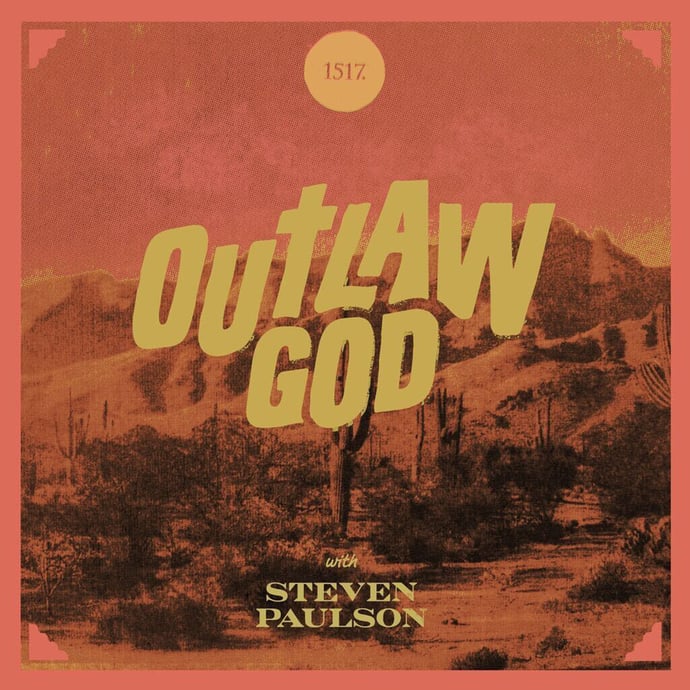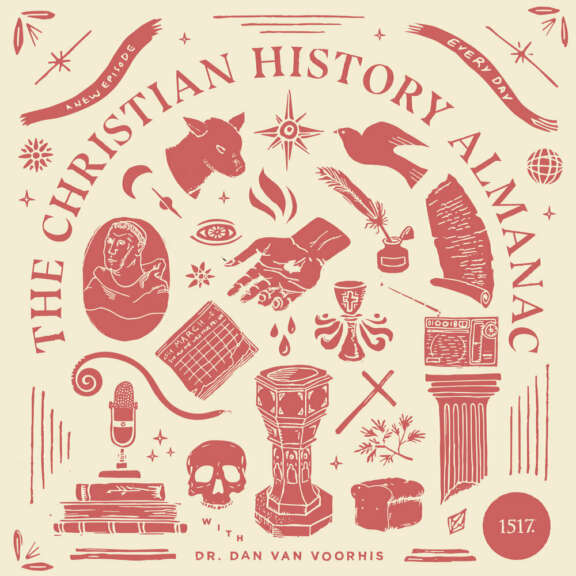Little Willy Plays in Duty. In this episode, we read Steven Paulson’s Outlaw God, discussing the appeal of the Law (in the abstract), why old Adam loves pretending he has free will, the Ninevite Conundrum, Jonah’s wormy preacher, and our obsession with placing therapy alongside Christ as a means of grace.
Podcasts
Each 1517 Podcast is dedicated to delivering Christ-centered content through weekly, monthly, and seasonal audio platforms. Listen online or on your favorite podcasting app.
Author
- All Authors
- Aaron Zimmerman
- Adam Francisco
- Amy Mantravadi
- Blake Flattley
- Bob Hiller
- Bradley Gray
- Brian W. Thomas
- Bror Erickson
- Bruce Hillman
- Caleb Keith
- Chad Bird
- Chris Rosebrough
- Christopher Gillespie
- Cindy Koch
- Craig Donofrio
- Dan van Voorhis
- Daniel Deen
- Daniel Emery Price
- Darrin Sheek
- David Andersen
- David Rufner
- David Zahl
- Debi Winrich
- Delwyn Campbell
- Donavon Riley
- Doug Klembara
- Edward Killian
- Elyse Fitzpatrick
- Erick Sorensen
- Flame
- Grant Klembara
- Gretchen Ronnevik
- Haroldo Camacho
- Jacob Smith
- Jared C. Wilson
- Jeff Mallinson
- Jeffrey Pulse
- Jessica Thompson
- Jim Nestingen
- Joel Fitzpatrick
- Joel Hess
- John Andrew Schreiner
- John Bombaro
- John T. Pless
- John W. Hoyum
- John Warwick Montgomery
- Katie Koplin
- Kelsi Klembara
- Ken Sundet Jones
- Luke Kjolhaug
- Magnus Persson
- Mark Mattes
- Matt Popovits
- Michael Berg
- Michael Horton
- Nick Lannon
- Paul Koch
- Peter Nafzger
- Philip Bartelt
- Raleigh Sadler
- RJ Grunewald
- Robert Kolb
- Rod Rosenbladt
- Ron Hodel
- Sam Leanza Ortiz
- Sarah Condon
- Sarah Crowder
- Scott Davis
- Scott Keith
- Steven Paulson
- Tanner Olson
- Troy Neujahr
- Uwe Siemon-Netto
- Wade Johnston
- William Cwirla
-
What is the right sacrifice before God? Dr. Paulson continues to examine Cain and Able in an effort to refute the notion that the difference between the two was a result of the correct use of free will.
-
Dr. Paulson discusses the difference between free will and dominion over creation.
-
Just Answer the Question. In this episode, we answer listener questions, specifically active and passive choices, active and passive righteousness, election and the bondage of the will, addiction, the limits of Alcoholics Anonymous, and the ultimate Good we all seek, and much, much more.
-
Come Together, Right Now… In this episode, we read from Tim Keller’s sermon, which asks, “What is the Church?” We discuss the relationship between churches and culture, what the church is and isn’t, where we locate faith, whether Christian faith changes one’s values, and much more.
-
Weekend Edition for May 10-11, 2025
-
Burning Down The House. In this episode, we continue our discussion of election, addressing the certainty of election, how we are chosen, the human limits of perseverance in faith, why the pope is a bad example of Christian piety, and how old Adam tries to invert election by burying it in our sacrifices and pious moralism.
-
Dr. Paulson continues to characterize the dialogue between Luther and Erasmus.
-
Is the Gospel just a feeling of relief?
-
Sunday Bloody Sunday In this episode, we read Martin Luther’s sermon for Maundy Thursday (1534), discussing the Lord’s Supper, polity, sacramental piety, fellowship, election and all the rabbit trails we follow…
-
God's word is not just a guide, making you desire to leave the cave and enter the world of real things.
-
Dr. Paulson discusses Plato's analogy of the Cave. He emphasizes how Erasmus used this analogy to confuse God's words of law and gospel.


